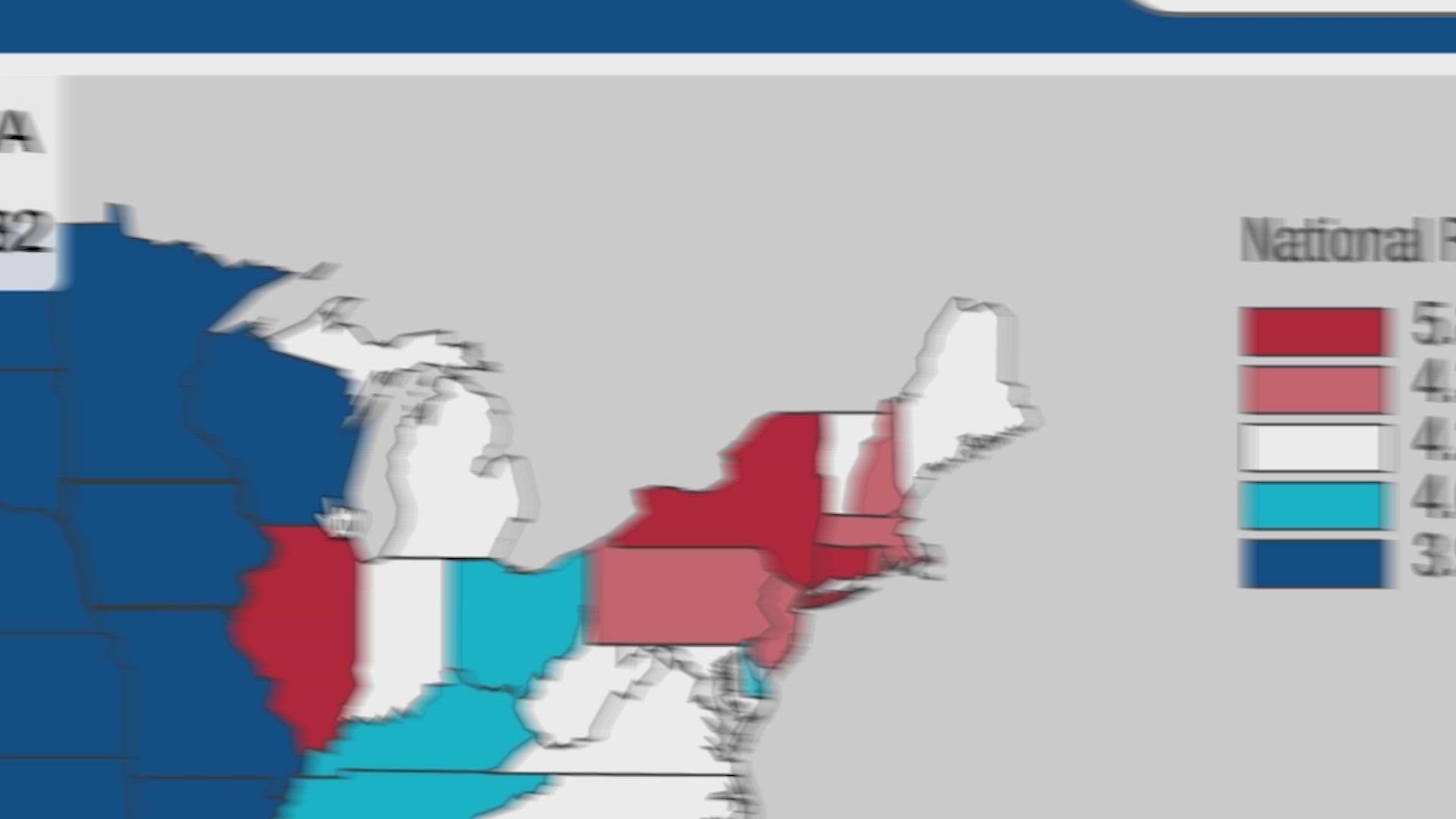WASHINGTON — During the great recession of 2008, gas prices got up to $4.00 per gallon. In 2014, gas got up to $3.60. Today, gas costs the average American more than $4.20 per gallon, according to AAA.
It’s normal for gas prices to fluctuate. It’s called supply and demand. If the demand exceeds the supply, prices go up. If supply exceeds the demand, prices go down.
In the spring of 2020, the COVID-19 pandemic caused widespread lockdowns. The Pew Research Center reported that due to those lockdowns and surges in cases across the country, people were driving less and the demand for gas was way down.
The pandemic even caused prices to drop below one dollar in several states. As things got back to normal, people started driving more, and demand and price went back up.
In recent weeks, consumers have watched gas prices soar in the United States. With California owning the highest gas in the nation at over $6, we asked an expert to explain what’s happening at the pump.
Trey Cowan from the Institute of Energy Economics and Financial Analysis says there are many factors that drive gas prices like weather, driving patterns and risk scenarios.
For example, the Colonial Pipeline was the victim of a ransomware attack in May 2021, which caused the system to shut down for several days. This was a huge deal because the Colonial Pipeline carries gasoline, diesel and jet fuel from Texas to New Jersey. The attack caused a major disruption across the country which drove the national average to $2.96, according to AAA.
Aside from those factors, there’s one specific situation that can totally exacerbate gas prices: War.
“What you start to see is that war tends to actually, in the short run, create a supply disruption and that’s what we’ve seen and what we were afraid of,” Cowan explained.
On Feb. 24, Russia invaded Ukraine and started an all-out war. Since its invasion, lives have been lost, economies have tanked and gas prices around the world have been on a rollercoaster. One month later, the U.N. reports nearly 3.4 million people have fled Ukraine, according to the Associated Press.
Weeks after the invasion, President Joe Biden announced the banning of all imports of Russian oil, gas and energy. Cowan said this move has a larger effect on the west coast from a regional standpoint, but overall, Biden’s decision won’t have a big impact on the United States.
“As a whole for the U.S. economy, 700,000 barrels out of call it 19 or 20 million is not that big of a deal. And so, we definitely put more punishment on the Russia economy than we are on ourselves,” said Cowan.
While the U.S. only relies on a fraction of Russian gas, there are other elements at play. A report by the U.S. Bureau of Labor Statistics found that the consumer price index increased 7.9% over the past 12 months, reaching the highest level of inflation since 1982.
Cowan said if consumers are spending more money at the pump, it will have a ripple effect on the economy, forcing consumers to change their spending habits, which means less money will be spent on other industries. He also said there is no telling how long consumers can expect the current trend at the pump to continue.
Things could turn around if OPEC nations increase their production dramatically, but Cowan warned we could see this last a very long time if there's further violence in the middle east and barrels are contracted instead of expanded in any of the OPEC nations.
Gas prices are out of control, there's no denying that, but Cowan said the reason behind the significant change in gas prices far outweighs the effects on American consumers' pockets.
“Whether it’s for oil or weed or whatever the reason behind one country invading a neighboring country like this, the inhumanity of it all is just really disappointing. The fact that it changes gas prices is a bummer, but it’s what’s behind these changes in gasoline prices that is really disappointing,” he added.

